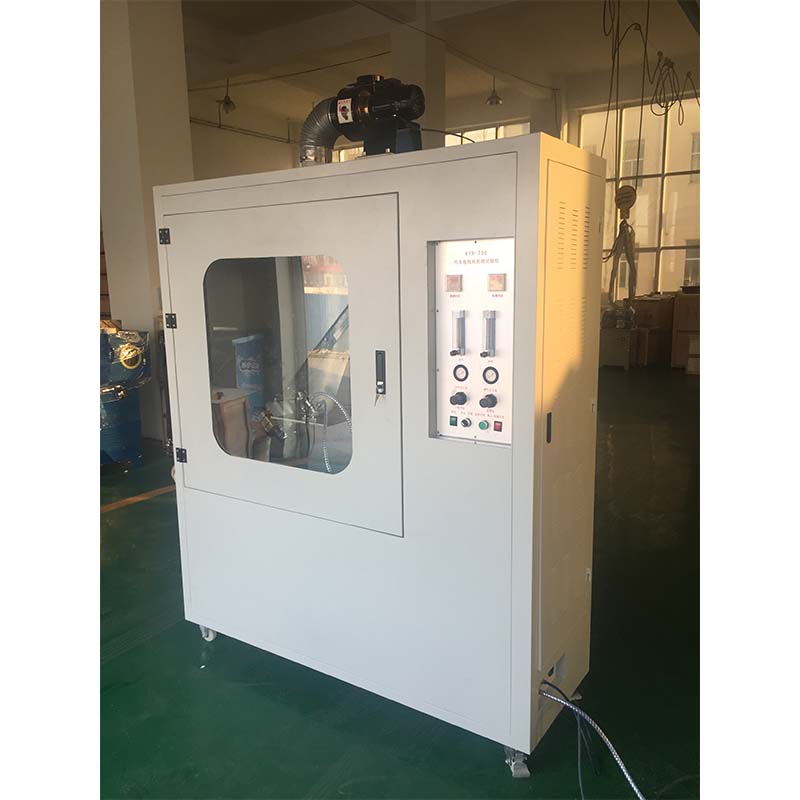clamps for tensile testers supplier
Clamps for Tensile Testers A Vital Component for Accurate Materials Testing
In the realm of materials science and engineering, tensile testing plays a crucial role in assessing the mechanical properties of materials. This process involves applying a uniaxial force to a specimen until it fails, providing vital information about its strength, ductility, and overall behavior under load. A key component of tensile testers is the clamp system, which securely holds the test specimen in place while the force is applied. The selection of the right clamps is essential for obtaining reliable and accurate results. In this article, we delve into the importance of clamps for tensile testers, focusing on their types, features, and the critical role suppliers play in ensuring quality.
Types of Clamps for Tensile Testing
Clamps, also known as grips, come in various designs tailored to meet the specific requirements of different materials and testing conditions. Here are some of the most commonly used clamp types
1. Wedge Grips These grips use a wedge mechanism to hold the specimen firmly in place as the force is applied. They are suitable for various materials, including metals and composites, due to their robust design. Wedge grips can accommodate a wide range of specimen sizes and shapes.
2. Collet Grips Collet grips utilize a conical attachment that tightens around the specimen when a pull force is applied. This design is ideal for round specimens and materials that require minimal sliding during testing. Collet grips ensure a strong hold without damaging the sample, making them a popular choice in laboratories.
3. Hydraulic Grips For larger specimens or when higher force levels are required, hydraulic grips are often used. These clamps rely on hydraulic pressure to secure the specimen, providing a consistent and adjustable grip force, which is especially beneficial for high-capacity testing.
4. Single and Double Action Grips These grips can either engage or release on one side (single action) or both sides (double action). Double action grips are often preferred for their ease of use and balanced force distribution, ensuring that the specimen is held securely throughout the test.
Features of Quality Clamps
When selecting clamps for tensile testers, several key features should be considered
- Material Quality Clamps should be made from high-strength materials that can withstand repeated use without deforming or breaking. Common materials include aluminum, steel, and specialized alloys that offer durability and strength.
clamps for tensile testers supplier

- Adjustment Mechanism A well-designed adjustment mechanism is crucial for accommodating various specimen sizes and ensuring a quick setup
. Clamps should allow for easy adjustments while providing a secure hold.- Surface Finish To minimize slippage and maximize grip, clamps should have a textured surface or use rubber pads. A high-quality finish also contributes to the longevity of the grips by preventing wear and corrosion.
- Ergonomics Especially in high-volume testing environments, ergonomically designed clamps make it easier for operators to load and unload specimens quickly and efficiently without compromising safety.
The Role of Suppliers
The importance of having a reliable supplier for tensile testing clamps cannot be overstated. Suppliers play a critical role in
- Product Quality A reputable supplier should offer clamps that meet industry standards and specifications. They should provide thorough documentation regarding the testing capabilities and limitations of their products.
- Customization Different applications may require specialized clamps. Leading suppliers often provide customized solutions tailored to specific testing requirements, ensuring compatibility with various materials and sizes.
- Technical Support A knowledgeable supplier not only provides high-quality products but also offers valuable technical support, helping clients choose the right clamps for their specific needs.
- Training and Resources Quality suppliers often offer training for users, ensuring that operators are proficient in the use of the clamps and understand the best practices for conducting tensile tests.
Conclusion
Clamps for tensile testers are more than just accessories; they are essential components that ensure the integrity and accuracy of material testing. By understanding the different types of clamps available and their unique features, professionals in the field can make informed decisions that enhance the reliability of their test results. Working with trusted suppliers plays a significant role in this process, providing the necessary support and high-quality equipment required for successful material analysis. With the right clamps in place, researchers and engineers can gain deep insights into material performance, ultimately driving innovation in product design and manufacturing processes.
-
The Role of Tensile Force Testers in Quality Control and Material Science
NewsAug.01,2025
-
Maintenance and Safety Tips for Aging Ovens
NewsAug.01,2025
-
Density Balance in Forensic Science
NewsAug.01,2025
-
Advanced Optical Measurement Technologies
NewsAug.01,2025
-
A Buyer’s Guide to Tensile Test Machines
NewsAug.01,2025
-
Why the Conductor Resistance Constant Temperature Measurement Machine Redefines Precision
NewsJun.20,2025
 Copyright © 2025 Hebei Fangyuan Instrument & Equipment Co.,Ltd. All Rights Reserved. Sitemap | Privacy Policy
Copyright © 2025 Hebei Fangyuan Instrument & Equipment Co.,Ltd. All Rights Reserved. Sitemap | Privacy Policy

